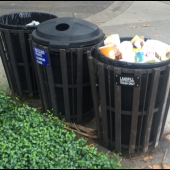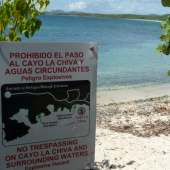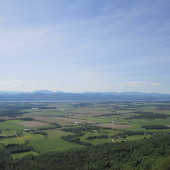
The goal of this paper is to characterize the current state of literature that explores the importance of local contexts in the uptake of sustainability in education policy enactment and practice, with a particular focus on land and place in relation to education policy. Place has been studied by various fields in distinctive ways, and each discipline tends to privilege a certain aspect of place based upon their disciplinary frameworks. As opposed to exploring place through a disciplinary lens, I am seeking to understand place as a holistic, multidimensional concept. Place has historically been conceptualized as static, never changing, and everlasting. In contrast, a more contemporary view describes place as always in process, always becoming; places are never complete, bounded, or finished. This transmutes place into a more subjective concept, something that is rich in imagery, memories, and history but blurred when it comes to limits, power, and hierarchy. Thus, places operate through reiterative and continual practice but can be disrupted through social change and movements, political swifts, and differing ideologies. This protean characteristic of place is significant when reviewing the policy enactments literature, which underscores the fact that schools are always specific, and they are dynamic and shift both internally and externally. This paper seeks to address the question: How can or should considerations of place (e.g., location, local-global, land as historical, contested, impacted by dominant culture) inform the engagement of sustainability in education policy enactment and practice?
Continue Reading
Place is more than an environment – it is about the activities, memories, and relationships that are a part of it. It has a history. This essay is about the places that are a part of a relationship and experiences with a family member. It entangles memories of childhood, war, politics, learning, and the simplicity of mountain tops. As this essay examines, the materiality of an environment is much more than mere matter and becomes inseparable from relationship and meaning.
Continue Reading
The author explores her own personal journey toward a sense of place as she draws connections among our natural and human community, early childhood development, peace, and sustainability. The story contributes to the continuing dialogue that explores the relationship of place to humans through various viewpoints, approaches, and experiences.
Continue Reading
The sport industry has a tremendous impact on the natural environment. As a result, sport organizations have implemented ways to reduce their impact ranging from energy upgrades, waste management programs, and fan engagement. However, fan engagement efforts have received mixed results to increase participation in sustainability initiatives. This paper proposes that sense of place can be leveraged using fan identification to increase participation in such initiatives, thereby decreasing the environmental impact of the sport organization and individual fans. A conceptual model is presented and practical examples provided for the use and reference of sport management and sustainability educators or researchers.
Continue Reading
This article draws on Heidegger’s philosophy to bring a phenomenological perspective to bear on the question of place. By revealing dynamic human and natural histories, narrative can be a particularly useful tool for orienting our environmental commitments. I share stories from Vieques, Puerto Rico, an island shaped by trauma, to illustrate the power of people articulating what they most value about the places they call home.
Continue Reading
This case study describes the experiences developing and teaching a course entitled “Understanding Place” at the Middlebury School of the Environment 2015 summer session. The course sought to include multi-disciplinary approaches to place while simultaneously engaging students and faculty in hands-on projects across the Champlain Valley in Vermont. Rather than engaging in depth with specifics of environmental history in the Champlain Valley, however, students were asked to apply the multiple perspectives encountered in the course to develop elements of a “toolbox” related to understanding the significance of place in a world increasingly characterized by globalization and mobility. In other words, rather than learning complex details and history of a singular place, students developed perspectives for understanding, valuing, and protecting the many places where they may live throughout their lives. At the conclusion of the course students were asked to teach other members of the Middlebury community about their findings. This collaborative effort over six intensive weeks between students and faculty resulted in a creative pedagogical tool—an “understanding place cookbook”—that was shared with all School of the Environment participants, faculty, and staff. While this case study is grounded in the specific context of the Middlebury School of the Environment, it points to tools and experiences that could be useful for developing globally aware place-based education at any institution, bringing an appreciation of global stratification and inequality into localized efforts toward community sustainability and resilience.
Continue Reading